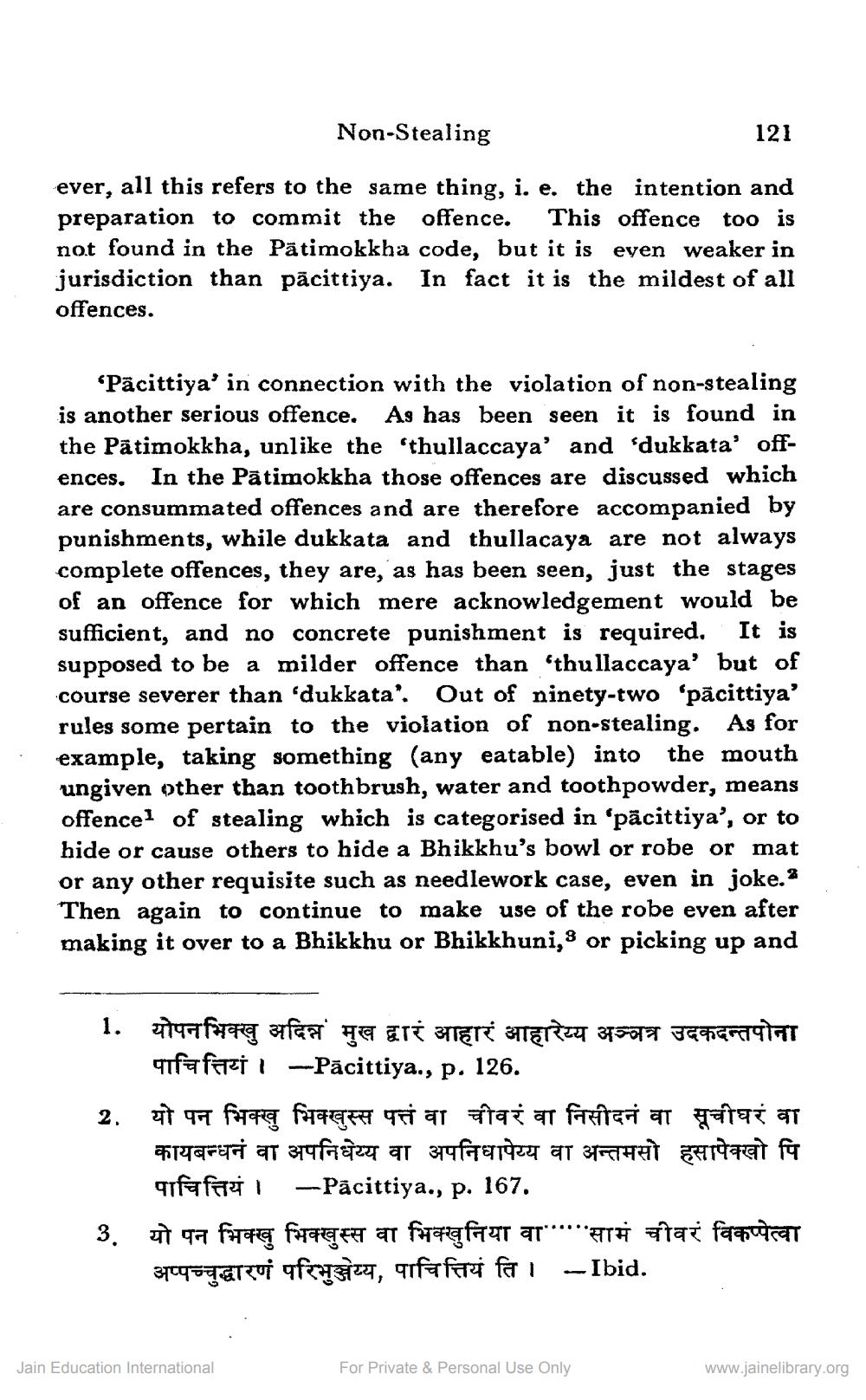________________
Non-Stealing
121
ever, all this refers to the same thing, i. e. the intention and preparation to commit the offence. This offence too is not found in the Pātimokkha code, but it is even weaker in jurisdiction than pācittiya. In fact it is the mildest of all offences.
Pacittiya' in connection with the violation of non-stealing is another serious offence. As has been seen it is found in the Pātimokkha, unlike the 'thullaccaya' and 'dukkata' offences. In the Pātimokkha those offences are discussed which are consummated offences and are therefore accompanied by punishments, while dukkata and thullacaya are not always complete offences, they are, as has been seen, just the stages of an offence for which mere acknowledgement would be sufficient, and no concrete punishment is required. It is supposed to be a milder offence than “thullaccaya' but of course severer than "dukkata'. Out of ninety-two 'pācittiya' rules some pertain to the violation of non-stealing. As for example, taking something (any eatable) into the mouth ungiven other than toothbrush, water and toothpowder, means offencel of stealing which is categorised in 'pācittiya', or to hide or cause others to hide a Bhikkhu's bowl or robe or mat or any other requisite such as needlework case, even in joke. Then again to continue to make use of the robe even after making it over to a Bhikkhu or Bhikkhuni, or picking up and
1. योपनभिक्खु अदिन्न मुख द्वारं आहारं आहारेय्य अत्र उदकदन्तपोना
Tiffai –Pxcittiya., p. 126. 2. यो पन भिक्खु भिक्खुस्स पत्तं वा चीवरं वा निसीदनं वा सूचीघरं वा
कायबन्धनं वा अपनिधेय्य वा अपनिधापेय्य वा अन्तमसो हसापेक्खो पि
q fFTET I Pãcittiya., p. 167. 3. यो पन भिक्खु भिक्खुस्स वा भिक्खुनिया वा..."सामं चीवरं विकप्पेत्वा
370937v f aza, qife ferai fai - Ibid.
Jain Education International
For Private & Personal Use Only
www.jainelibrary.org




